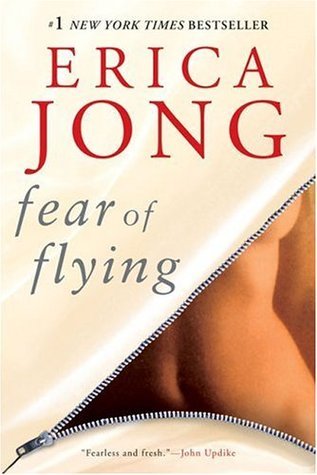TL;DR
Erica Jong's 'Fear of Flying' follows Isadora Wing's journey of self-discovery as she navigates her desires and frustrations in a world dominated by expectations of womanhood and sexuality.
What is Fear of Flying about
'Fear of Flying' is a seminal novel that chronicles the life of Isadora Wing, an ambitious young poet feeling trapped in a conventional marriage and societal norms. As she accompanies her husband to a psychoanalysts' conference in Vienna, Isadora embarks on an exploration of her sexuality and personal identity. The novel delves into themes of liberation, womanhood, and the complexities of relationships, reflecting the broader cultural shifts of the 1970s. Initially published in 1973, it became a landmark work that redefined narratives around female desire and sparked significant dialogue around sexual freedom.
Fear of Flying 6 Key Takeaways
Isadora's dissatisfaction with her life.
Isadora Wing feels stifled by her marriage and the expectations placed upon her as a woman. This sense of discontent propels her to seek something beyond the confines of her current life.
The trip to Vienna.
Accompanying her husband to a psychoanalysts' conference in Vienna serves as a catalyst for Isadora's journey, juxtaposing her intellectual aspirations with her desire for personal freedom.
The quest for sexual liberation.
Isadora's decision to pursue casual relationships leads her to explore the boundaries of her desires, fostering both excitement and self-doubt as she seeks to affirm her identity.
Revisiting her past.
Throughout her experiences, Isadora reflects on her upbringing, relationships, and societal pressures that have shaped her understanding of herself and her aspirations.
The climax of self-discovery.
Isadora confronts her deepest fears and desires, culminating in a moment of clarity regarding her identity and what she truly wants from life.
Returning home with newfound insight.
By the end of her journey, Isadora returns with a more profound understanding of herself, recognizing the complexities of her identity as a woman and a writer.
Top Fear of Flying Quotes
- "I want to fly free, but I am afraid of falling."
- "The only way to be free is to be yourself, no matter how terrifying that may seem."
- "Fear is a cage, and I refuse to be trapped by it any longer."
Who should read Fear of Flying?
'Fear of Flying' appeals to readers interested in feminist literature, psychological exploration, and those seeking narratives that confront the complexities of identity and desire. Its bold themes resonate with anyone navigating the challenges of self-discovery, particularly women questioning societal roles and expectations.
Fear of Flying Best Reviews
- "Fear of Flying is a brave exploration of the confounding nature of female desire and identity, presenting a voice that resonates across generations." – O Magazine
- "Jong’s writing is smart, bold, and extremely funny, making her characters' neuroses relatable and engaging." – Meg Wolitzer
- "This groundbreaking novel remains a pivotal work in feminist literature, challenging conventions and inspiring readers to embrace their own desires." – The New York Times
People also liked these summaries
Fear of Flying FAQs
Is 'Fear of Flying' a true story?
'Fear of Flying' is not a literal autobiography but incorporates autobiographical elements, reflecting Jong's own experiences and views on women's sexuality and identity.
What is the main theme of 'Fear of Flying'?
The central theme revolves around self-discovery, as Isadora Wing navigates her personal history and societal expectations to define her identity as a woman and writer.
